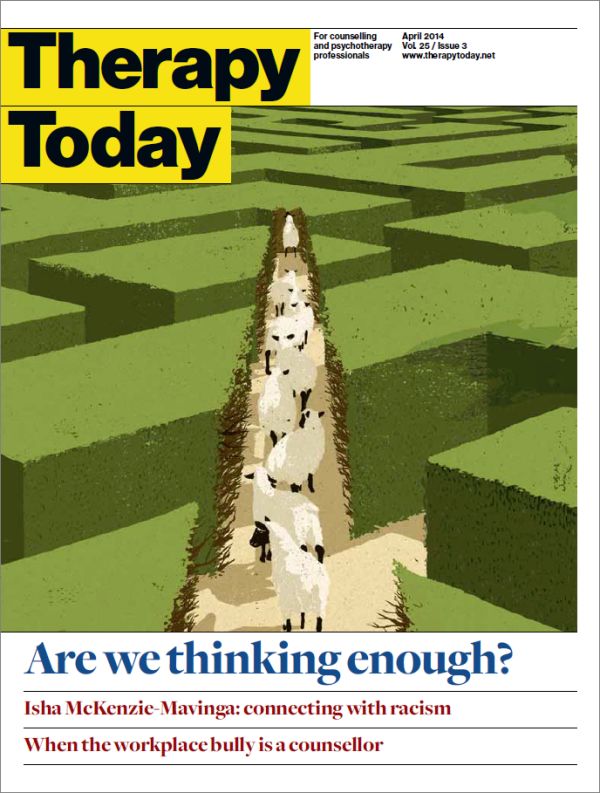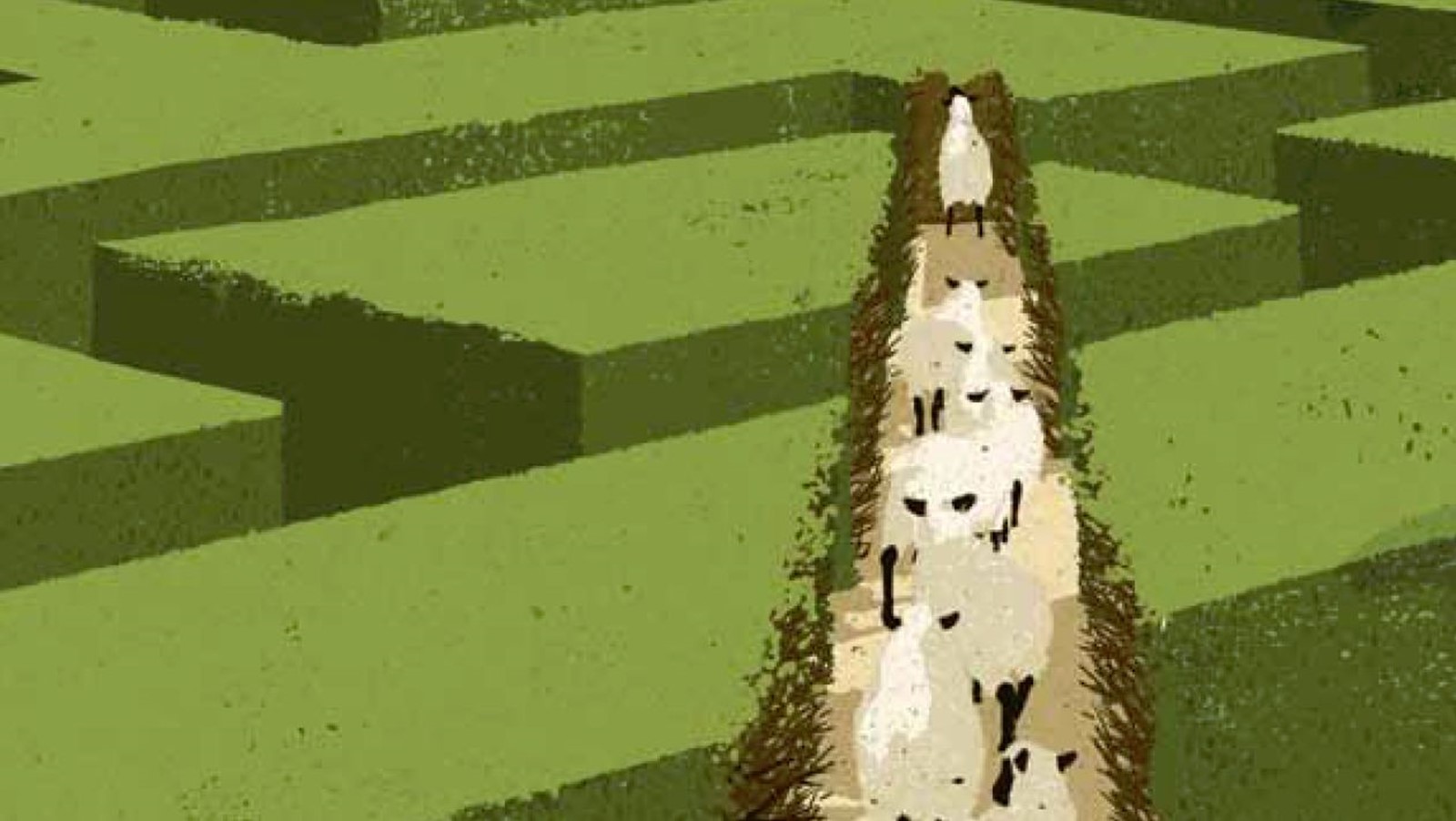In this issue
Features
Should we have the right to die?
Catherine Jackson looks at the isssues raised for counsellors by the Assisted Dying Bill
Whatever happened to critical thinking? (free article)
Colin Feltham asks why counselling is so reluctant to engage with theory and critical thought
When the bully is a fellow therapist
Werner Kierski and Jessica Johns-Green explore a rarely discussed problem in the counselling profession
Setting up in private practice
Fiona Starr and Karen Ciclitira offer guidance to counsellors new to private practice
Inside story: working in a women’s prison
John Fletcher provides a vivid description of counselling in a women’s prison
The differences between us
Counsellors must not be afraid to speak about cultural difference, writes Georgina Green
Regulars
In practice
Ruth Bridges: Side by side with pain
In the client's chair
John Sampson: A different set of eyes
In the supervisor's chair
Rosie Dansey: How to choose a supervisor
The researcher
Barry McInnes: Hard-wired for empathy
Talking point
Kris Black and Suzanne Keys: Challenging racism in our ranks
Dilemmas
Client confidentiality online
The interview
Isha McKenzie-Mavinga: To be fully ourselves
How I became a therapist
Sally Ingram
BACP
From the chair
Amanda Hawkins: Hope, loss and voluntary counsellors

Members and subscribers can download a pdf of this issue from the Therapy Today archive.
Editorial
What part does our emotional attachment (or the ‘affect heuristic’) play in our choice of and loyalty to our therapy modality? What part does finance play – the fact that we are likely to have invested thousands of pounds in training in a particular approach? I recognise this emotional investment in a particular approach from my own experience of therapy and training and also the general reluctance on the part of other trainees to question or deconstruct a particular school of thought, particularly when they have shelled out a lot of money for the course.
In our cover article this month Colin Feltham – who describes himself as a ‘critical friend’ of counselling and psychotherapy – asks why there is such a lack of critical thinking in our field. Why are therapy’s critics more likely to be sociologists, philosophers, scientists and ex-clients than therapists themselves? Why is it so difficult to discuss big questions – like the difference between counselling and psychotherapy, whether we need personal therapy in training or whether a particular therapy works – in a logical rather than an emotive way? Does the fact that most therapists are focused on interpersonal and clinical work rule out devoting time to more intellectual critiquing of therapy?
Colin argues that trainers, for example, are much more likely to have been emotionally influenced by their therapy experiences than to have spent years studying texts on theory and research before deciding that a particular approach is for them. He asks how much trainees are encouraged to question and critique therapy, suggesting that far more weight is given to what you feel and not what you think. Even doctoral candidates, he argues, tend to remain wedded to their beliefs and display superficial levels of critical thinking.
Perhaps it is unrealistic to expect hard-pressed practitioners – who may be struggling even to get paid employment – to be concerned about such questions. Let us know your views.
Sarah Browne
Editor
